Viewing archives for
Join the “Turing NeuroAI Supra-Interest Group” and attend the Inaugural Webinar
This initiative is supported by the Alan Turing Institute, the UK’s national institute for data science and artificial intelligence, and aligns with the Turing’s commitment to foster interdisciplinary collaboration in order to extend the limits of science and healthcare innovation.
This group is dedicated to bringing together a diverse community of professionals with interests in the fields of neuroscience, neurology, neurosurgery, neurotechnology, and the broader clinical field, who share a keen interest in the application of Clinical AI. The group ultimately aims to:
- Enhance Knowledge Sharing: Facilitate the exchange of ideas, research findings, and best practices among peers.
- Expand Networking Opportunities: Connect you with like-minded professionals across academia, industry, and clinical settings.
- Offer Educational Resources: Organise webinars and workshops on cutting-edge topics relevant to Neuro-AI.
- Build a Comprehensive Database: Compile a resource of UK-based scientists, clinicians and industry leaders active in Neuro-AI, to foster collaboration and innovation.
To join the Turing NeuroAI Supra-Interest Group, please follow the link to our “Join Us” page on the Clinical-AI section of the Turing Institute website: https://www.turing.ac.uk/research/interest-groups/clinical-ai.
We would also like to invite you to our inaugural webinar to be delivered by Mr Hani Marcus (UCL) on “AI to Advance Surgery for Patients with Pituitary Tumours”, held on 4th September at 17:00 UK time (BST). To read more and register, please see the links below:
Webpage here: https://lnkd.in/evts-Mjp
Directly register here: https://lnkd.in/ey2m2yQu
Collaborative project between Cardiff University & the University of Exeter welcomes postdoctoral research associate.
Dr Jo Reeves (pictured) has joined the project as a postdoctoral research associate. Jo has nearly five years’ post doc experience and a PhD in biomechanics, which involved investigating the effects of orthotics on muscle activity and biomechanics during walking. One of her key research interests is electromyography (EMG) and she has conducted studies exploring methodological considerations and protocols for fine-wire and surface EMG. Jo recently received training at the University of Hertfordshire to become a level one operator on the GRAIL system (Motek). Using the GRAIL treadmill (pictured below) will allow us to provide the electrical stimulation to elicit the nociceptive withdrawal reflex (NWR) at precise points within the gait cycle. The aim of the project will be to establish a protocol to (a) evaluate the nociceptive withdrawal reflex (NWR) throughout the gait cycle and (b) evaluate the effect of tonic pain on the NWR throughout the gait cycle in healthy individuals.

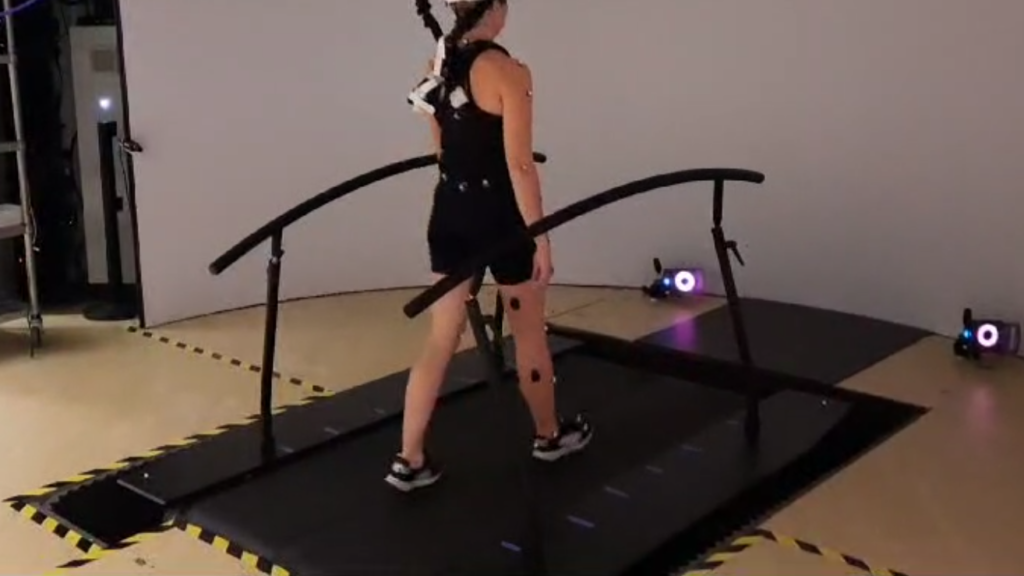
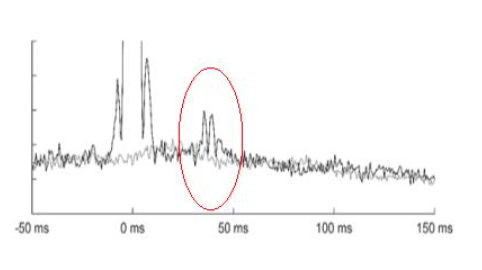
We will then use this as data on which to build a funding application to study NWR throughout the gait cycle in chronic pain, and what implications any dysregulation in NWR modulation would have on gait and balance control and falls risk and also functional mobility.
UK Symposium on Neuromodulation & Neurotechnology
Our partner neuro networks are hosting an upcoming 2 – day symposium in Nottingham, UK. The event will include a showcase of network-funded research, plenary talks from international speakers, presentations and panel discussions on PPI in neurotechnology and industry translation, and lightning talks discussing latest developments in neurotechnology and neuromodulation. The event is in-person only. Registration is open until 5th August 2024.
For more details, please visit https://neuromodplus.org/event2/uk-symposium-on-neuromodulation-and-neurotechnology/
Neurotechnology & Pain workshop
Held at the Streatham campus, this workshop explored the promises and pitfalls of neuromodulation in chronic pain research. Guest speakers presented each morning on a range of translational topics covering neuromodulation in experimental human models, methodological considerations and clinical studies. This was followed by interactive TUS and TMS workshops each afternoon, hosted by Brainbox & Dr Elsa Fouragnan (University of Plymouth). Poster presentations were displayed and discussed over each lunchtime; this was a great opportunity to network and encourage discussions. A drinks reception and dinner was also held on the first evening at Reed Hall.
Our poster prize winners included:
1st Prize – Danielle Hewitt – ‘Neural mechanisms of cued pain anticipation during lateralised tonic pain in healthy volunteers: a multisensory method powered by virtual reality’
2nd Prize – Sonia Medina – ‘Multimodal Mechanistic Assessment of Nature-Based Analgesia in Healthy Humans: a Virtual Reality Study’
3rd Prize – Bhushan Thakkar – ‘Prolonged Continuous Theta Burst Stimulation Increases Corticomotor Excitability and Intracortical Inhibition in Patients with Neuropathic pain: An Exploratory, Single-Blinded, Randomized Controlled Trial’
Thank you again to everybody that contributed and attended!
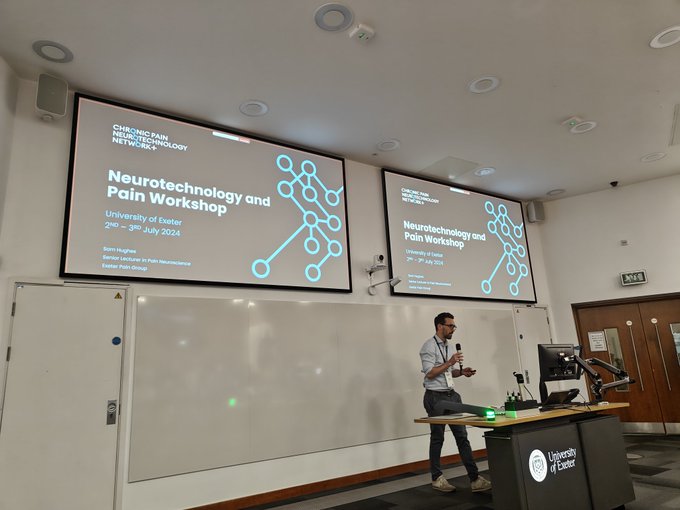
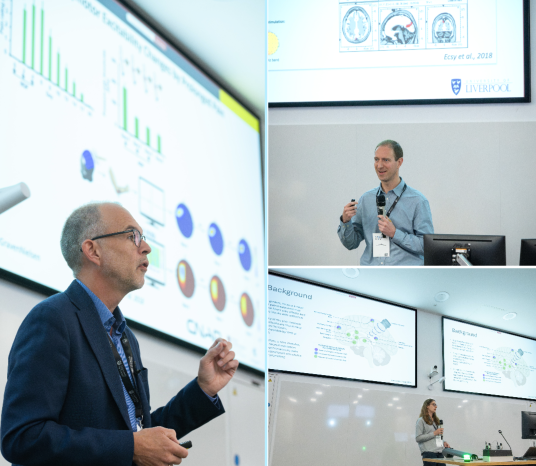
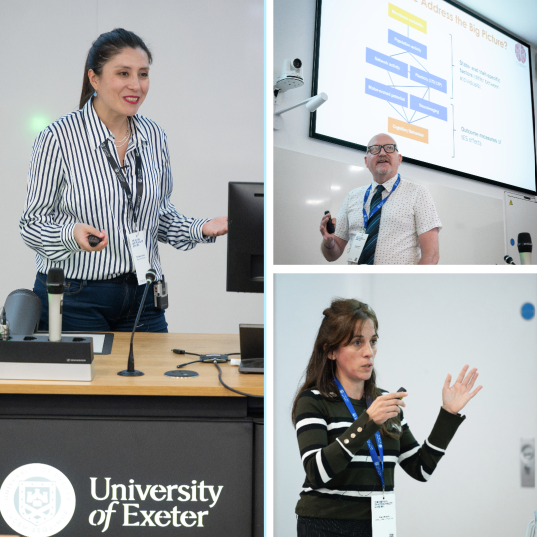
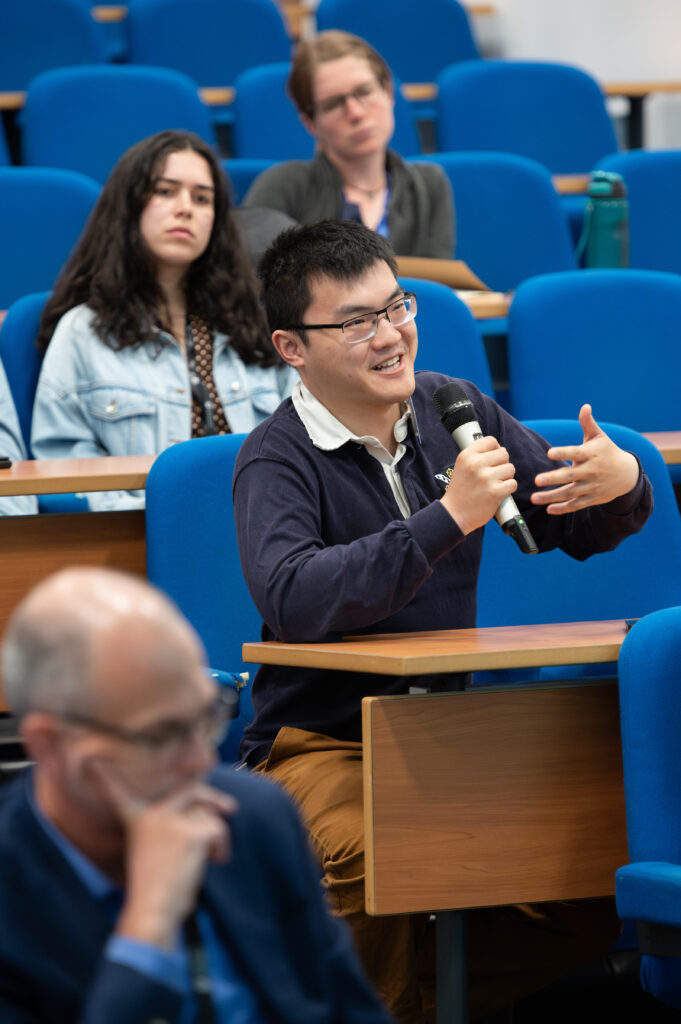
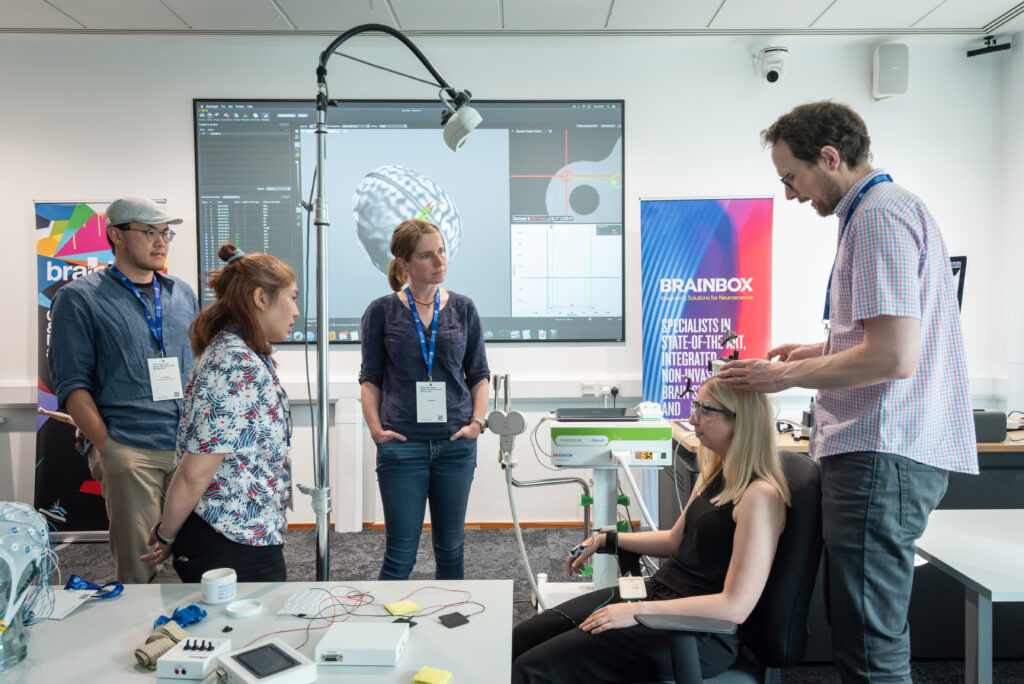
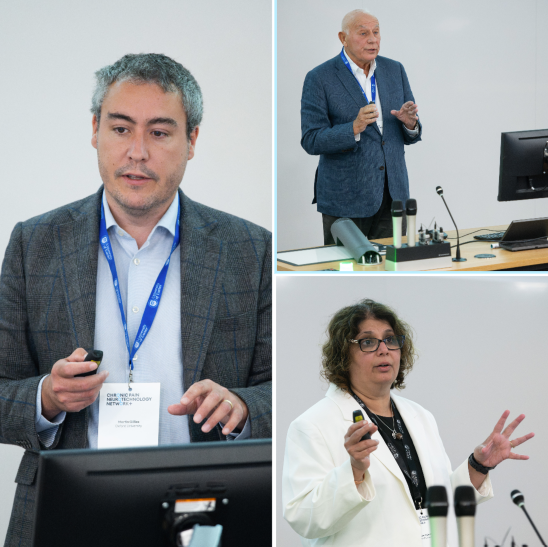
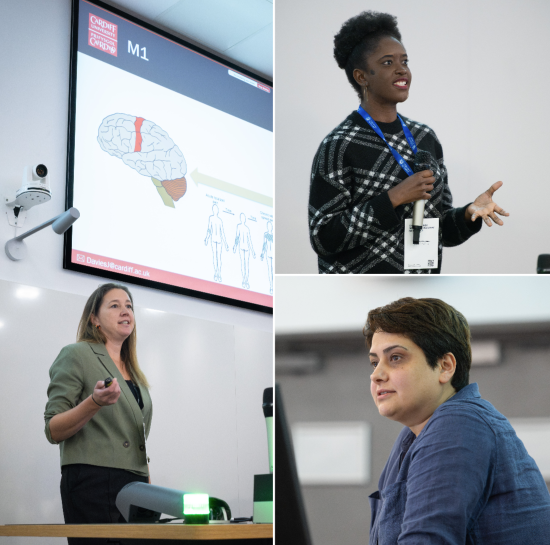
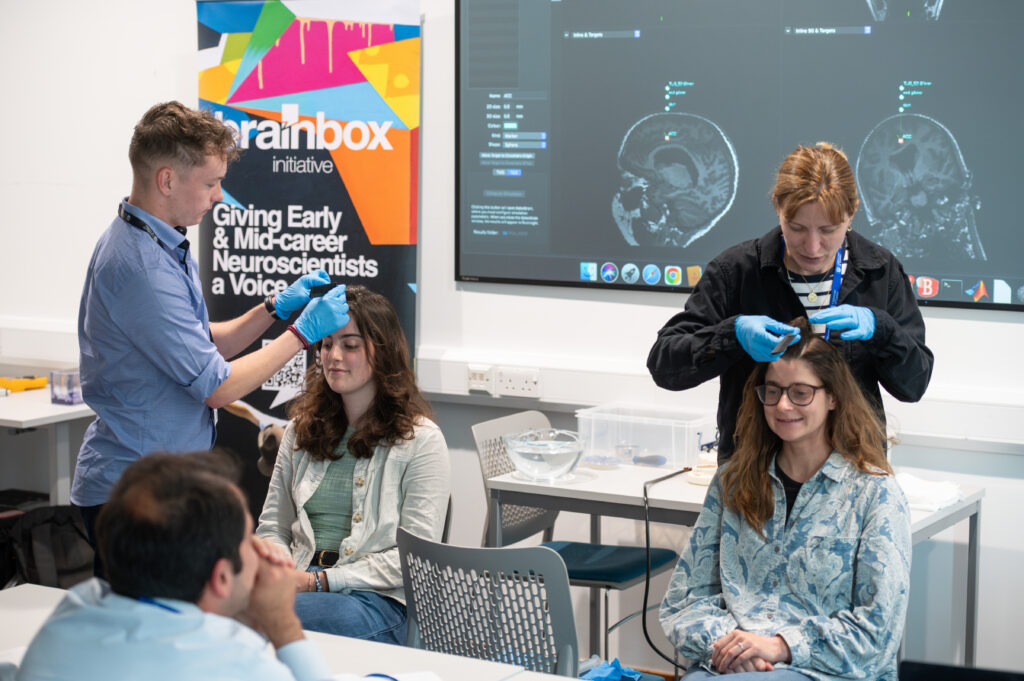
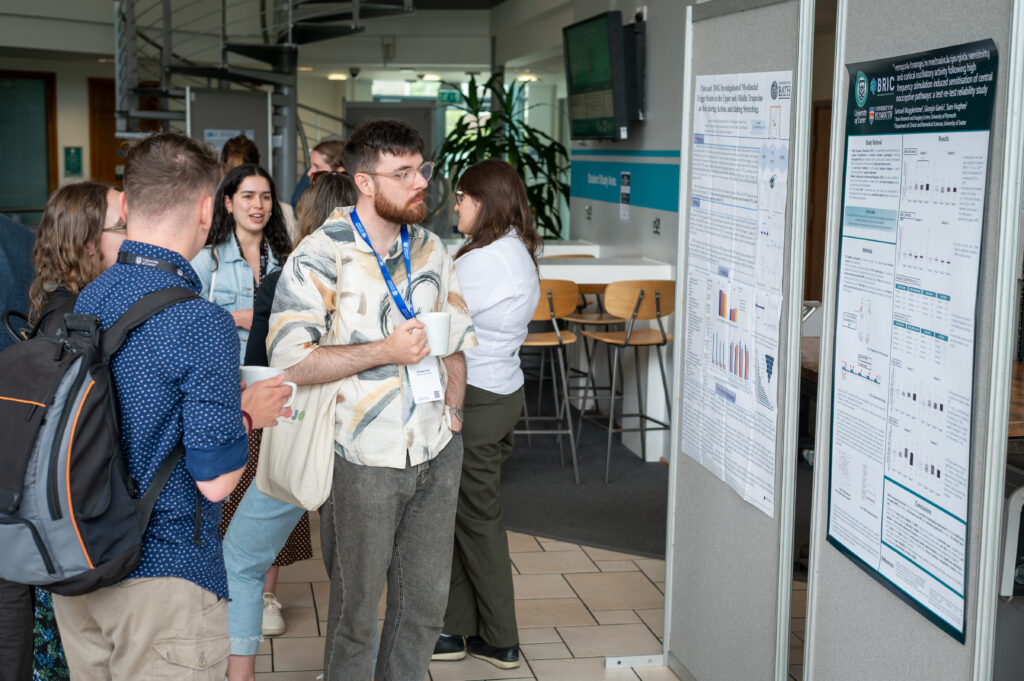
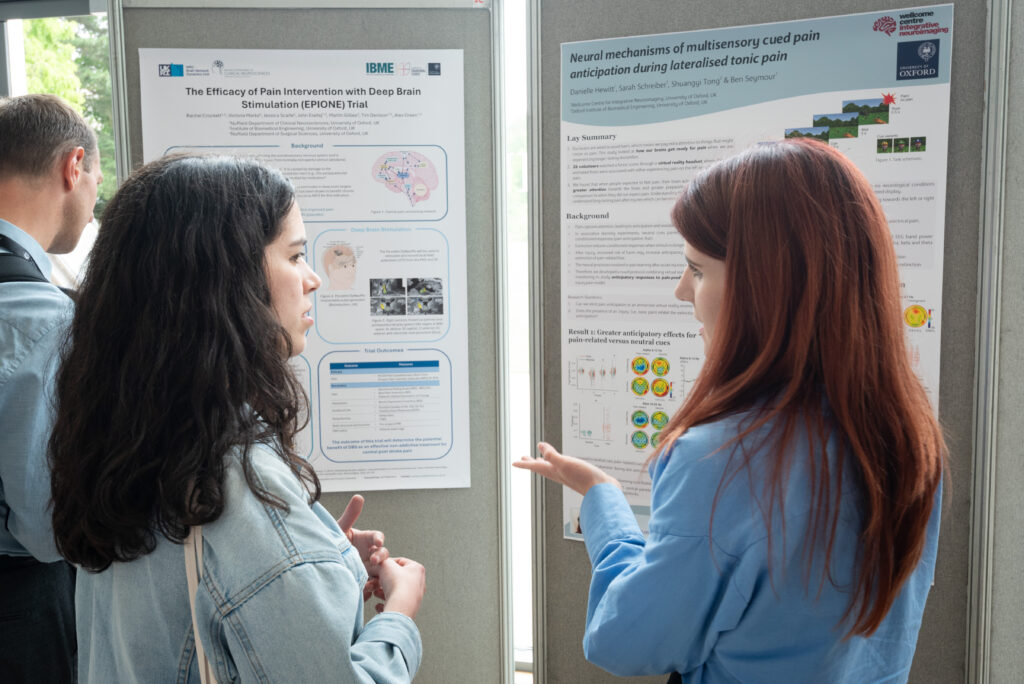
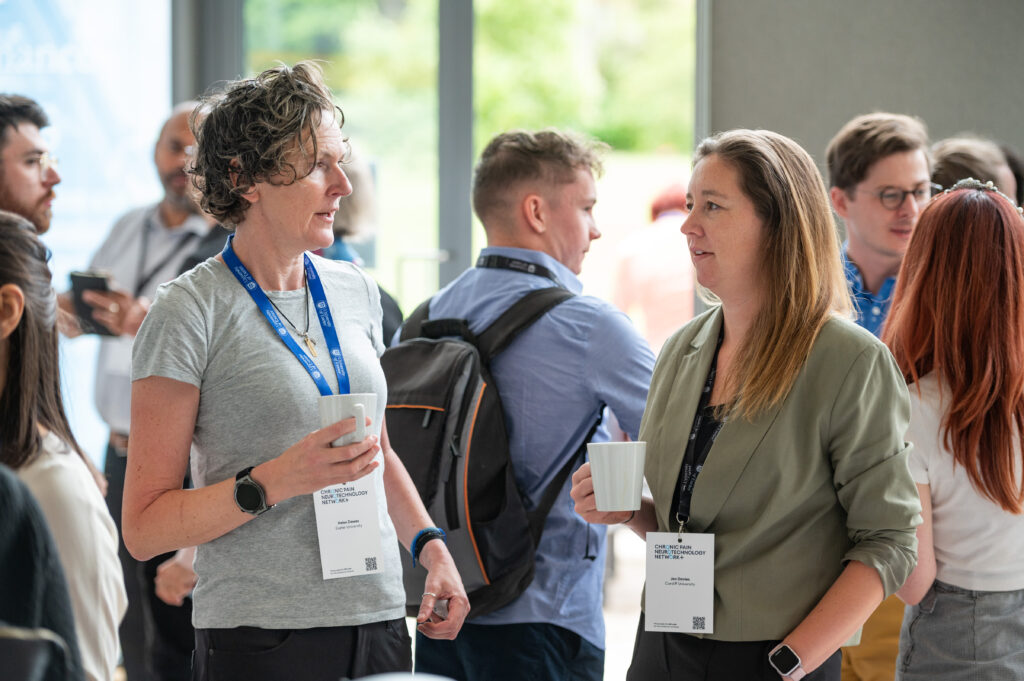
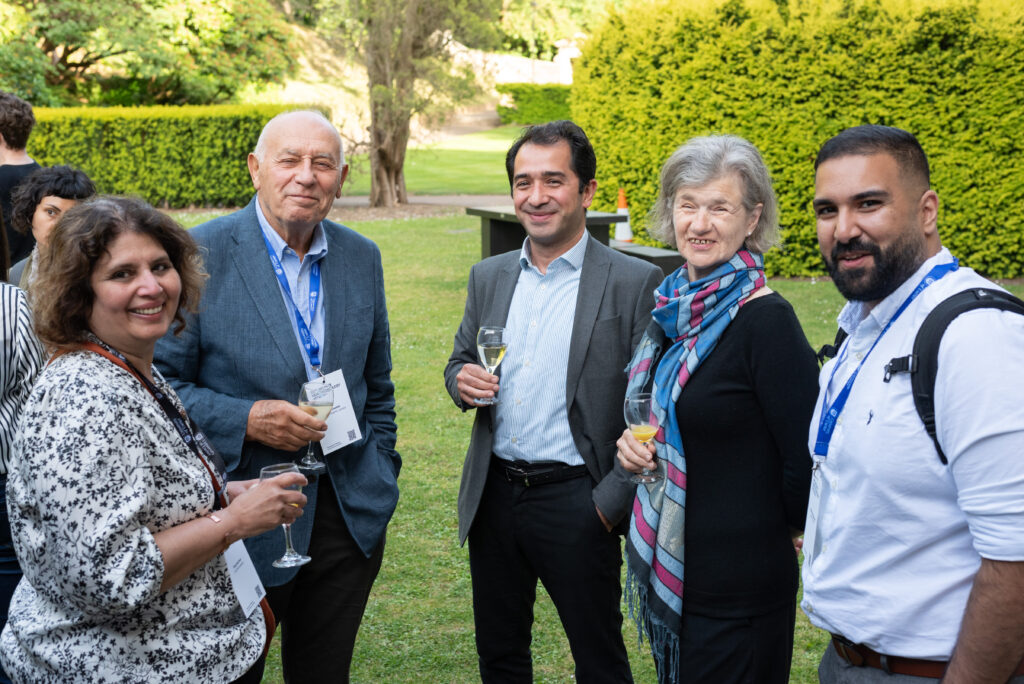
CPNN+ Neurotechnology & Pain Workshop
This interdisciplinary workshop will include talks from various guest speakers, poster presentations and two interactive workshops to explore the promises and pitfalls of neuromodulation in chronic pain research. For more details, please visit https://cpnn.ac.uk/activity/workshop
1st Oxford Health BRC Pain Conference: From Theory to Practice
The Oxford team hosted a very successful conference at Lady Margaret Hall. The meeting was organised by the NIHR Oxford Health Biomedical Research Centre (BRC), in collaboration with several other of the national BRC’s and CPNN+. This brought together researchers and patients to discuss the latest progress on the development of new therapies for chronic pain. Look out for a similar conference next year!
Virtual Reality in Healthcare
With 35 attendees, the above event was held on Wednesday 17th April 2024, and covered a morning on virtual reality in Healthcare at the University of Cardiff. Our Co-Applicant (Valerie Sparkes) opened the event and also presented on ‘Multimodal approaches used in Virtual Reality for LBP – How do we know what works?’. The event also included speakers; Juan Hernandez Vega presenting on the ‘Human-robot interaction, and collaboration via multimodal immersive interfaces’ & Soumya Barathi presenting on ‘Exergaming’ (Exercise controlled gaming). Mohammed Alghamdi from Cardiff’s School of Healthcare Sciences (pictured), presented on ‘Why use immersive virtual reality for chronic pain?’, along with a closing workshop held by Mohammad Al Amri (School of Healthcare Sciences).
APDP annual conference 2024
This year’s conference will build on new and established collaborations, sharing knowledge and bringing together diverse perspectives across the broad range of disciplines and stakeholder groups. The academic programme will include Elevator Pitches (short presentations of key outputs from APDP community members) linked to poster presentations, plenary lecture, and workshops on the following topics:
- Co-morbidity
- Pain in Childhood
- Technological solutions to pain
- Diversity amongst people with pain
- Cohorts
For more information and to register your place, please visit https://apdp.community/event/advanced-pain-discovery-platform-annual-conference-2024/
Registration closes on 17th April 2024.
BrainBox – Satellite workshop
We are delighted to have BrainBox attend our upcoming 2 day event on 2nd July 2024 at Exeter University. BrainBox will be providing an afternoon workshop on an ‘Introduction to Non-Invasive Brain Stimulation’ For more information & to register your interest, please visit their website https://brainbox-initiative.com/workshops/introduction-to-non-invasive-brain-stimulation-workshop Please be aware that spaces are limited and competitive for this workshop! For more information about our ‘Neurotechnology & Pain’ event, please visit https://cpnn.ac.uk/activity/workshop/

UKRI Innovate UK Neurotechnology Conference
Innovate UK Business Connect hosted a neurotechnology conference, with the aim of bringing together innovators in the neurotechnology field. It was a great opportunity to hear about the latest innovations in neurotechnology, and network with those developing neurotechnologies in sectors such as health and gaming. Our network P.I (Ben Seymour) also presented CPNN+ to all attendees. For a full agenda from the day and a list of the guest speakers, please visit https://web-eur.cvent.com/event/d20349d8-8a56-457b-bc92-91246fc0a877/websitePage:0c244e61-58f6-4b7f-b27d-a5ae29dd8707
